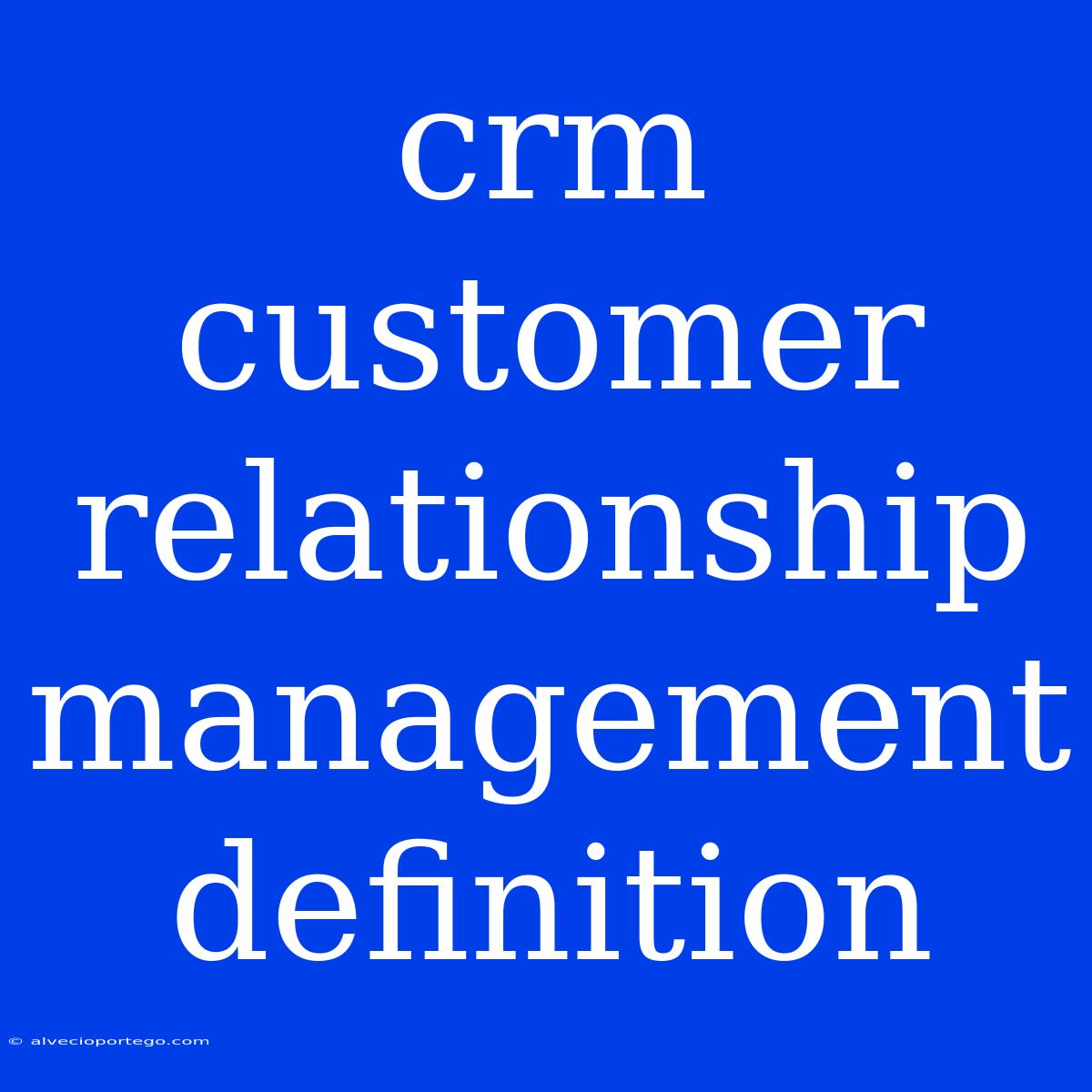What is CRM (Customer Relationship Management)?
CRM, or Customer Relationship Management, is a strategy and a suite of technologies that businesses use to manage and improve their interactions with current and potential customers. It encompasses a wide range of activities, from tracking customer data and interactions to automating marketing campaigns and providing personalized customer service.
The core goal of CRM is to:
- Build stronger relationships with customers by understanding their needs and preferences.
- Improve customer satisfaction and loyalty by delivering exceptional experiences.
- Increase revenue and profitability by attracting new customers and retaining existing ones.
- Streamline business processes by automating tasks and providing a centralized view of customer data.
Key Components of CRM
CRM systems typically include the following components:
- Customer Data Management: Collecting, storing, and managing customer information like demographics, purchase history, preferences, and interactions.
- Sales Automation: Automating tasks like lead qualification, opportunity management, and sales forecasting.
- Marketing Automation: Creating and managing targeted marketing campaigns, sending personalized emails, and tracking campaign effectiveness.
- Customer Service & Support: Handling customer inquiries, resolving issues, and providing support through various channels.
- Analytics & Reporting: Providing insights into customer behavior, sales performance, and marketing effectiveness.
Benefits of Implementing CRM
Implementing a CRM system can provide numerous benefits for businesses, including:
- Improved Customer Satisfaction: Personalized experiences, faster response times, and better problem resolution lead to higher customer satisfaction.
- Increased Revenue & Profitability: Effective customer retention, cross-selling, and upselling opportunities lead to increased revenue and profitability.
- Enhanced Sales Productivity: Automation of tasks and access to real-time customer data boost sales productivity and efficiency.
- Improved Marketing Effectiveness: Targeted campaigns, personalized messages, and data-driven insights optimize marketing ROI.
- Streamlined Business Operations: A centralized view of customer data and automated workflows simplify processes and improve efficiency.
Types of CRM Systems
CRM systems come in various forms, each designed for different business needs:
- On-premises CRM: Installed and managed on the business's own servers.
- Cloud-based CRM: Hosted and accessed via the internet, making it accessible from any device.
- Open-source CRM: Free to use and modify, offering flexibility and customization.
- Industry-specific CRM: Tailored to specific industries, like healthcare, finance, or retail.
Conclusion
CRM is an essential tool for businesses looking to build lasting relationships with their customers, improve customer satisfaction, and drive revenue growth. By implementing a comprehensive CRM strategy and leveraging the power of CRM technology, businesses can optimize their customer interactions and achieve their business goals.

